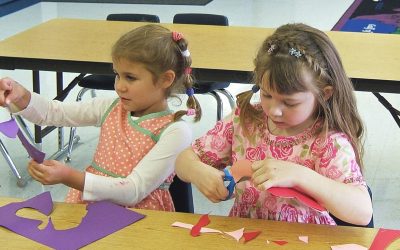“Gratitude is the fairest blossom which springs from the soul.”
~ Henry Ward Beecher
GRATITUDE AND KIDS
Children may not make time to pause and take stock of their good fortune, or opportunities—such as fun-filled collaborations, creative pursuits, or learning or recreational activities. They may take experiences or things for granted. Perhaps they’re too busy. Or maybe they don’t appreciate the power of gratitude, and how it can lead to fulfillment.
Adults can help kids realize their own capacities and the joys of life by demonstrating and nurturing an “attitude of gratitude.” (“An attitude of gratitude is a never-ending prayer.” ~ William Arthur Ward) This attitude involves making the most of each day, encouraging effort and energy, and reinforcing the many undercurrents of gratitude.
UNDERCURRENTS OF GRATITUDE (WHAT TO BE GRATEFUL FOR…)
Positive aspects of life vary from one person to the next. What might those aspects be? Although material possessions, comforts, or privileges may come immediately to mind, there are other noteworthy considerations. For example, strengths, blessings, health, meaningful connections, and experiences—small, large, and unexpected dynamics, including those facilitated by others.
Telling children to “be thankful” for what they have or can do is a rather perfunctory approach. Instead, suggest they think or write about the following prompts, to impactfully connect gratitude to their own lives:
- What makes you happy? (When do you laugh, sing, or dance?)
- What do you know? (When do you feel excited, kind, or strong?)
- How can you make a positive difference? (Who or what can help or support you?)
Considering questions like these—and answers, too—sparks awareness of experiences and encounters that matter, and why kids should be grateful for them. They can chat also with others, sharing ideas and upbeat vibes.
TIPS FOR ENCOURAGING GRATITUDE
“As we express our gratitude, we must never forget that the highest appreciation is not to utter words, but to live by them.”
~ John F. Kennedy
Here are four practical strategies:
1.) Pay attention to occurrences that may otherwise get overlooked. Striking sunsets, spontaneous hugs and chuckles, celebratory moments, flowers in bloom, icy water on scorching days, birds’ melodies… These happenings are significant. They can bolster energy. Enjoy—and be thankful together.
2.) Demonstrate resilience. Don’t dwell on negatives or difficulties. Talk with kids about “silver linings,” and how to look on—and appreciate—“the bright side.”
3.) Say “thank you” often—to friends, family members, educators, neighbours, crossing guards, coaches, and so on… Be sincere. Smile. Recognize what merits gratitude, and then pay it forward. Children can emulate this. And, it extends pleasure exponentially.
4.) Learn more about gratitude, and its advantages. Investigate together. For example, find out how gratitude can reduce stress levels, fortify relationships, and enhance personal growth. It can also help people navigate adversity and feel motivated. Those are profound benefits!
LAST WORDS
“When a person doesn’t have gratitude, something is missing in his or her humanity.”
~ Elie Wiesel
In many cultures, people tend to focus on gratitude around Thanksgiving, during harvest seasons, and at family gatherings. However, any time is opportune for cultivating and conveying an “attitude of gratitude.” Whether independently or with others, appreciate and be thankful for simple pleasures, abundance, and goodness—within the heart, home, community, and elsewhere.
AUTHOR’S NOTE:
This piece is updated from an article that I wrote that was featured in issues of Best Version Media’s Neighbours Magazines, and distributed across Ontario, Canada and beyond.








